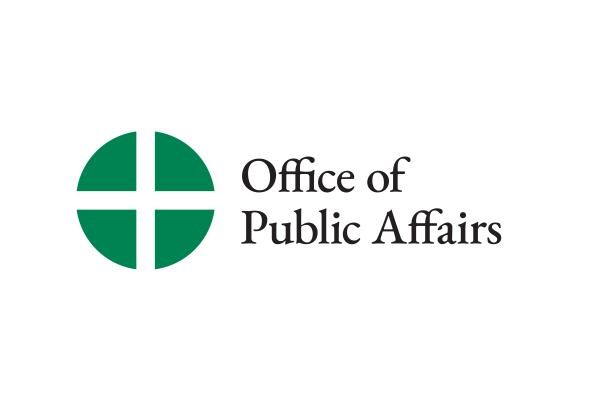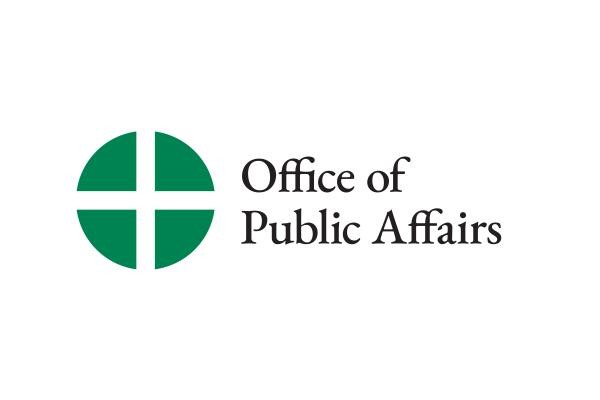Understanding of Primacy, and Current Issues, Are Among Topics at Meeting of Orthodox and Catholic Bishops
WASHINGTON (October 18, 2002) -- The Joint Committee of Orthodox and Catholic Bishops held its 19th meeting in Chicago, Illinois, from October 8 to 10, 2002, under the auspices of the Standing Conference of Canonical Orthodox Bishops of America.
WASHINGTON (October 18, 2002) -- The Joint Committee of Orthodox and Catholic Bishops held its 19th meeting in Chicago, Illinois, from October 8 to 10, 2002, under the auspices of the Standing Conference of Canonical Orthodox Bishops of America. It was chaired jointly by Metropolitan Maximos of Pittsburgh and Archbishop Oscar H. Lipscomb of Mobile.
The first two sessions of the meeting were devoted to an ongoing discussion of the functioning of primacy in the Church as understood by the two traditions. Metropolitan Maximos presented a paper, "Primacies of Honor: Development of Primacies in the Life of the Church." He concluded that while primacy developed differently in the East and in the West, a solution could be found in the decision of the Council of Constantinople of 879-880 to recognize the primacy of Old Rome and New Rome, each within their own territory. Each of the Catholic members offered their own responses and reflections to this paper.
The discussion of primacy continued with a presentation of the 1999 document produced by the Anglican-Roman Catholic International Commission (ARCIC), "The Gift of Authority." Sr. Sara Butler, MSBT, a Catholic member of ARCIC and Assistant Professor of Systematic Theology at the University of St. Mary of the Lake in Mundelein, Illinois, presented the text and commented on the way in which it treats the theological concept of primacy and the authority of the episcopate in the Church.
The Joint Committee was also able to examine the 1999 document produced by the North American Orthodox-Catholic Theological Consultation, "Baptism and 'Sacramental Economy.'" For this purpose Fr. Alexander Golitzin of the Department of Theology of Marquette University, and an Orthodox member of the Consultation, was invited to speak about the contents and significance of the text. He also informed the Joint Committee about the Consultation's current work on the filioque question, and its hope to produce a joint statement on this issue – long a point of division between Catholic and Orthodox -- in the near future.
A session of the meeting was also devoted to an examination of the continuing education programs the two churches provide for their clergy, with special emphasis on the communication of developments in ecumenism. Bishop Seraphim of Ottawa gave a presentation from an Orthodox perspective, while Bishop Dale Melczek of Gary spoke about programs in the Catholic Church.
The Joint Committee also devoted two sessions to a discussion of major events in the lives of the churches. One session was devoted entirely to two recent documents of the United States Conference of Catholic Bishops: Charter for the Protection of Children and Young People and Essential Norms for Diocesan/Eparchial Policies Dealing with Allegations of Sexual Abuse of Minors by Priests, Deacons, or Other Church Personnel. The second session dealt with the Pastoral Agreement on Mixed Marriages between the Coptic Orthodox Church and the Greek Orthodox Patriarchate of Alexandria and All Africa; the visit of Pope John Paul II to Armenia; the creation of Catholic dioceses in Russia; the visit of a delegation from the Church of Greece to the Vatican in March 2002; the visit of Pope John Paul II to Bulgaria in May 2002; the non-recognition of Patriarch Irineos of Jerusalem by the Israeli government; the Joint Declaration on Environmental Ethics signed by Ecumenical Patriarch Bartholomew and Pope John Paul II; the situation of the Serbian Orthodox Church, efforts to achieve Orthodox unity in Ukraine; the clergy-laity Congress of the Greek Orthodox Archdiocese; the election of Metropolitan Herman of America; the visit of Metropolitan Filaret of Minsk to the United States, and Orthodox participation in the World Council of Churches.
On Wednesday evening, October 9, the members of the Joint Committee attended a Vespers service at Holy Resurrection Serbian Orthodox Cathedral that was presided over by Metropolitan Christopher. This was followed by a festive dinner at the parish school. The members expressed their gratitude to Very Rev. Dragoljub Dennis Pavichevich, the Pastor of the Cathedral, and to the other members of the parish who made this event possible.
The next meeting of the Joint Committee is schedule to take place October 7-9, 2003, under the auspices of the Archdiocese of Baltimore.
The Joint Committee of Orthodox and Catholic Bishops was established in 1981. The Catholic members currently include Archbishop Oscar H. Lipscomb of Mobile (Co-Chairman), William Cardinal Keeler, Archbishop of Baltimore, Archbishop Daniel Pilarczyk of Cincinnati, Bishop Tod D. Brown of Orange, Bishop Robert Mulvee of Providence, Bishop Dale Melczek of Gary, Bishop Nicholas Samra, Auxiliary of the Melkite Greek Catholic Eparchy of Newton, and Rev. Ronald G. Roberson, CSP (staff).
The Orthodox members are Metropolitan Maximos of Pittsburgh (Co-Chairman) Archbishop Peter of New York (Orthodox Church in America), Archbishop Vsevolod of Scopelos (Ukrainian Orthodox Church of the USA), Metropolitan Isaiah of Denver (Greek Orthodox Archdiocese), Metropolitan Christopher (Serbian Orthodox Church), Metropolitan Nicholas of Amissos (Carpatho-Russian Orthodox Diocese), Bishop Seraphim of Ottawa and All Canada (Orthodox Church in America), and Bishop Dimitrios of Xanthos (Greek Orthodox Archdiocese, staff).


